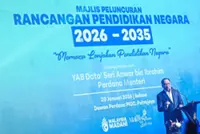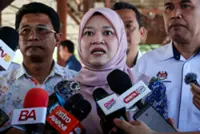KUALA LUMPUR: The government needs to focus specifically on improving teaching and learning facilities and infrastructure in schools to ensure that the education digitalisation agenda in the national education system can be fully achieved next year.
Secretary of the Education and Human Capital Development Cluster of the National Council of Professors Dr Anuar Ahmad said for that purpose, the government needed to provide special allocations in Budget 2024 presented in October to drive the digitalisation of education.





